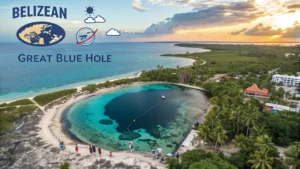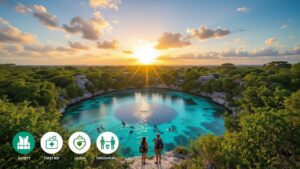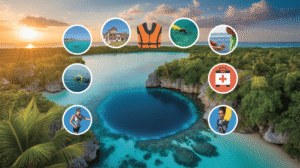Belize is recognized as a premier Caribbean destination, attracting visitors with its breathtaking landscapes and rich cultural heritage. However, it is vital for prospective travelers to find a harmonious balance between indulging in the paradisiacal beauty of Belize and implementing necessary safety precautions to protect themselves. This extensive guide provides the latest crime statistics, government travel advisories, and firsthand experiences to empower travelers with the essential knowledge needed to explore Belize’s magnificent beaches, vibrant jungles, and remarkable ancient ruins—all while keeping their safety a top priority.
1. Analyzing Crime Rates and Trends in Belize for Informed Travel
As of 2024, Belize reported a homicide rate of 21.7 per 100,000 inhabitants, which reflects a minor increase from the previous year’s statistic of 21.5. Notably, there was a significant decrease in homicide cases by 29 percent during the initial half of 2025, recording 41 cases compared to 58 in the same period of 2024. According to the CompStat report from the Belize Police Department, a general reduction in major crimes by 9 percent was observed, dropping from 536 incidents in H1 2024 to 489 in H1 2025. This positive trend in safety can be attributed to substantial declines in murder rates (–29 percent), robbery rates (–15 percent), and theft incidents (–26 percent), which collectively indicate an encouraging improvement in security for both residents and visitors.
| Crime Category | Jan–Jun 2024 | Jan–Jun 2025 | Change |
|---|---|---|---|
| Major crimes | 536 | 489 | –9 percent |
| Murders | 58 | 41 | –29 percent |
| Robbery | – | – | –15 percent |
| Theft | – | – | –26 percent |
2. Crucial Government Travel Advisories for Exploring Belize Safely
- U.S. Department of State: At present, Belize is classified as Level 2: Exercise Increased Caution due to the prevalence of violent crime, including incidents of sexual assault, home invasions, armed robberies, and homicides. Specifically, the Southside of Belize City falls under Level 3: Reconsider Travel—highlighting the necessity to steer clear of non-tourist areas situated south of Haulover Creek. Source: U.S. Department of State
- Government of Canada: Canadians are urged to exercise a high degree of caution throughout the country, with specific recommendations to avoid non-essential travel to Southside Belize City due to ongoing gang and drug-related violence. Source: Government of Canada
- UK FCDO: The UK Foreign, Commonwealth & Development Office cautions that Belize ranks among the countries with the highest murder rates globally per capita; serious gang-related violence predominantly affects the Southside of Belize City. However, regions such as San Pedro, Caye Caulker, Placencia, and San Ignacio are generally regarded as safe for travelers who exercise appropriate caution. Source: UK Foreign, Commonwealth & Development Office
3. Recognizing High-Risk Areas and Common Crimes Encountered in Belize
- Belize City (Southside): This area is infamous for gang activity, which significantly contributes to the high rates of violent crime. It is advisable to avoid non-tourist neighborhoods, especially after dark, to ensure personal safety and well-being.
- Border Zones: The regions near the borders are currently experiencing increased smuggling activities and cross-border violence, particularly with Guatemala, which travelers should remain vigilant about.
- Petty Crime Hotspots: Tourist areas like San Pedro have reported incidents of pickpocketing and credit card fraud. Always be cautious and shield your PIN when utilizing ATMs, and prefer machines located inside banks for enhanced security.
4. Proactive Safety Strategies for Travelers Visiting Belize
Boosting Your Personal Security While Traveling in Belize
- Stay vigilant: It is essential to avoid walking alone during nighttime, particularly in urban areas like Belize City and Belmopan, where the likelihood of crime is heightened.
- Protect your valuables: Always utilize hotel safes for storing important items and keep wallets and phones concealed to deter potential thieves and pickpockets.
- Be wary of spiked drinks: Never accept food or beverages from strangers, as this could lead to dangerous situations that compromise your safety.

Transportation Safety Guidance for Travelers in Belize
- Road Conditions: It is important to note that many secondary roads in Belize are unpaved and poorly illuminated. Therefore, it is advisable to drive only during daylight hours and ensure your fuel tank is filled before undertaking longer journeys.
- Public Transport Precautions: Public buses in Belize often lack proper maintenance—hence, it’s best to avoid them whenever possible. When utilizing licensed taxis, remember that they are not regulated by meters; thus, negotiating your fare beforehand is essential to prevent misunderstandings.
- Ferry Safety Measures: When traveling between the islands (cayes), ensure that life jackets are readily available and that the vessels are not overcrowded to guarantee safe travel experiences.
Participating in Adventure Activities with Safety in Mind
- When engaging in adventure activities such as scuba diving, zip-lining, and cave tubing, always select reputable operators. Review their safety records and equipment standards to ensure your well-being; consider procuring travel insurance that covers medical evacuation in case of emergencies.
- Only swim in designated areas; riptides are common, and lifeguards are often not present, making it essential to prioritize safety in water activities.
Key Health Precautions for Travelers Heading to Belize
- Vaccination Guidance: Although there are no entry requirements for yellow fever, it is highly advisable to get vaccinated against hepatitis A, hepatitis B, typhoid, and rabies before traveling to Belize. For comprehensive details, refer to the CDC guidelines.
- Mosquito Protection Strategies: Considering the year-round risk of diseases like dengue, chikungunya, and Zika, it is crucial to use EPA-approved insect repellent, wear long-sleeved clothing, and utilize mosquito nets while sleeping to minimize exposure.
- Water Safety Protocols: Adhere to the guideline of “boil it, cook it, peel it, or leave it” regarding food and water consumption. Carry oral rehydration salts to efficiently manage traveler’s diarrhea and stay adequately hydrated.
5. Important Considerations for Women, Children, and LGBTQ Travelers in Belize
- Women traveling alone should exercise heightened caution to avoid isolated areas and dimly lit alleys, as there have been reports of harassment in certain regions.
- Members of the LGBTQ community may encounter social stigma in Belize; it is advisable to refrain from public displays of affection to ensure personal safety and comfort.
- Children traveling independently or with only one parent must possess notarized parental consent letters, as immigration officials in Belize rigorously enforce this regulation.

6. How to Access Emergency Services and Consular Support While in Belize
- In case of emergencies, always dial 911 for immediate assistance, whether it involves medical, fire, or police services throughout Belize.
- The U.S. Embassy situated in Belmopan and the Canadian Honorary Consul in Belize City can assist with issues such as arrests, detentions, or other emergencies. For further information, visit U.S. Embassy Belmopan.
- Ensure you enroll in your government’s traveler-registration program, such as STEP for U.S. citizens or the Registration of Canadians Abroad for Canadians, to stay informed and receive essential assistance during your travels.
Thorough Bibliography for Informed Travelers
- Belize Police Department’s CompStat report
- U.S. Department of State Belize Travel Advisory
- Government of Canada Travel Advice for Belize
- UK Foreign, Commonwealth & Development Office Advice
- CDC Traveller’s Health: Belize
- U.S. Embassy Belmopan
The Article Is Belize Safe to Visit? 2025 Complete Safety Guide for Smart Travelers appeared first on Belize Travel Guide
The Article Belize Safety Guide 2025: Essential Tips for Smart Travelers Was Found On https://limitsofstrategy.com


